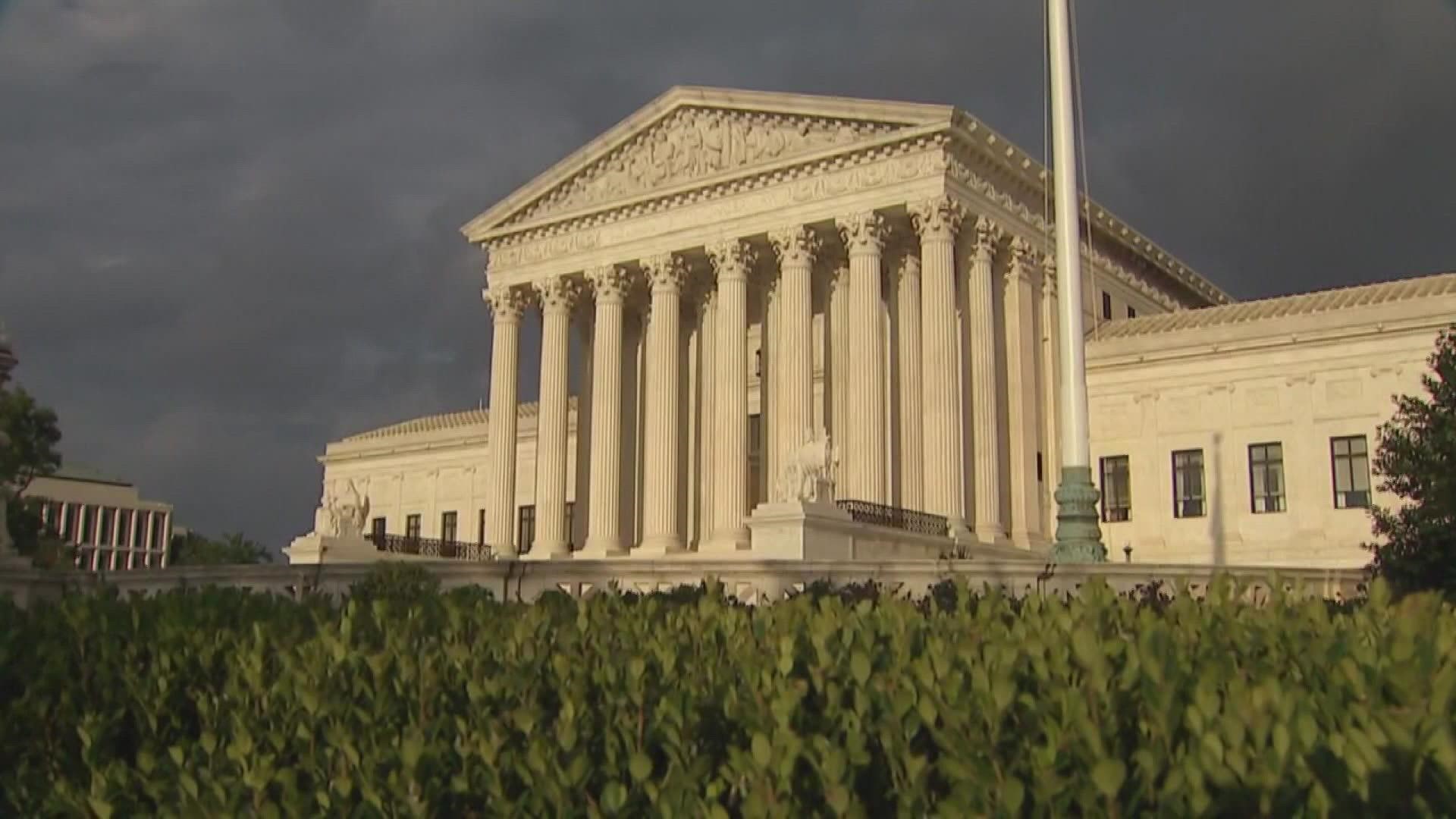As the abortion debate reached a fever pitch in the U.S. Supreme Court, at least 25 other states -- including Michigan are expected to ban or severely restrict abortion rights if justices agree to overturn one of the Court’s best-known decisions.
In Michigan's case, the state would likely pick-up where it left off some 90 years earlier.
Anti-abortion signs hung over the freeway at Diamond Avenue in Grand Rapids as the nation’s highest court heard oral arguments in Dobbs v. Jackson Women’s Health Organization.
The case challenges Mississippi’s restrictive abortion laws, but could spell a sweeping overhaul of the nation’s reproductive healthcare landscape.
“The law is going to change. There’s no question the law’s going to change,” Retired Brigadier General Michael McDaniel, who teaches constitutional law at WMU’s Cooley Law School predicted Wednesday.
Any outcome that substantially weakens or overturns the precedent set decades earlier by Roe v. Wade, McDaniel said, would open the flood gates to a sea of restrictive new laws on the state level.
“It’s going to be almost a body blow to the concept of individual autonomy,” McDaniel explained. “That could affect a lot of other laws out there that could pass by states to restrict what individuals can do.”
Michigan would be among the first to see the ripple effects, nor would any additional steps be required from the state legislature in Lansing.
That’s because a little known 1931 law -- which outlines one of the strictest bans in the nation – technically remains on the books and theoretically, would again apply.
“If the Supreme Court says they’re overruling… then abortions are illegal in the State of Michigan,” McDaniel said. “There’ll be all kinds of social and political impacts and reverberations as a result of that.”
“It would be a horrific set of circumstances if, after 50 years, the precedent set by Roe v. Wade were to be overturned.”
The state’s top prosecutor, Attorney General Dana Nessel, reiterated her vow not to enforce the pre-Roe ban to 13 On Your Side via Zoom Wednesday, even if SCOTUS first cleared the way.
“I am not interested in sending women and their medical providers to prison for what I believe to be a private and very personal decision between a woman and her doctor,” Nessel related.
Pro-life groups Wednesday urged Nessel to reverse course.
Michigan Right to Life said it was pleased with what it saw playing out in the nation’s highest court.
The group would not only like to see justices nullify Roe v. Wade, but a future constitutional amendment making abortion a federal crime.
Though it admitted the ultimate outcome in this case was less than clear cut.
“How arguments go is not necessarily how the final decision is and that’s going to be a long wait,” Gast said. “Predicting what they’re going to do is practically impossible.”
With oral arguments finished, justices will now gather to discuss how to move forward with the case.
A decision isn’t expected until mid-2022.
If the high court agrees to overturn Roe v. Wade or Casey v. Planned Parenthood, Michigan’s 1931 ban would likely face additional testing under the state constitution.
►Make it easy to keep up to date with more stories like this. Download the 13 ON YOUR SIDE app now.
Have a news tip? Email news@13onyourside.com, visit our Facebook page or Twitter. Subscribe to our YouTube channel.

